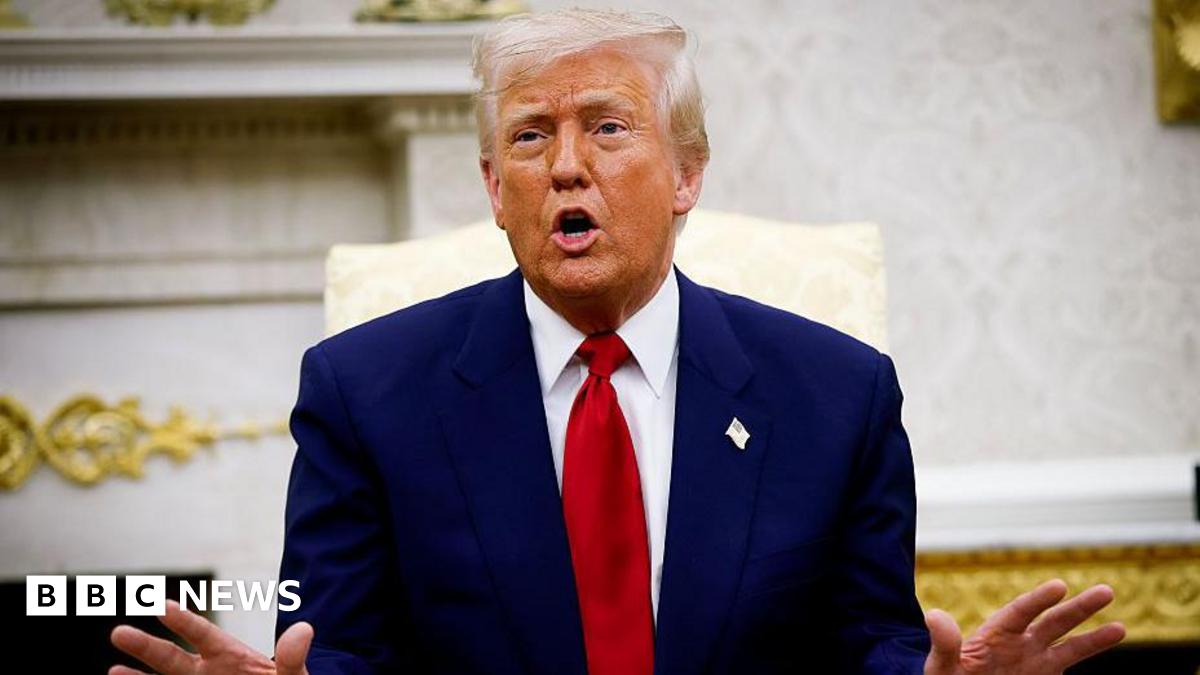Trade War Shift: Trump's iPhone Olive Branch – A Temporary Truce or Lasting Peace?
The ongoing US-China trade war took a surprising turn last week with President Trump's apparent softening of stance on tariffs affecting Apple's iPhones. This unexpected "olive branch" has sent ripples through global markets, leaving analysts scrambling to decipher its meaning and long-term implications. Is this a temporary reprieve or a significant shift in the broader trade conflict?
The iPhone Tariff Concession:
Initially, the Trump administration had threatened to impose hefty tariffs on a wide range of Chinese goods, including iPhones. These tariffs, slated to take effect in September, were widely anticipated to significantly impact Apple's profits and potentially trigger price increases for consumers worldwide. However, in a recent statement, the President indicated a willingness to delay or even completely waive these tariffs, sparking speculation about a potential shift in trade negotiation strategies. While the exact details remain somewhat opaque, the move suggests a possible compromise to avoid further economic disruption.
Reasons Behind the Shift:
Several factors may have contributed to this seemingly sudden change in the administration's approach:
-
Economic Pressure: The escalating trade war has undeniably created economic uncertainty, impacting both US and Chinese businesses. Delaying or removing tariffs on iPhones could be seen as an attempt to mitigate some of this negative impact, particularly on the crucial holiday shopping season.
-
Political Considerations: With the upcoming US presidential election, economic stability and consumer confidence are paramount. A move to alleviate tariff pressure on a popular consumer product like the iPhone could be a calculated political strategy to boost public approval.
-
Negotiating Leverage: Some analysts speculate that this concession might be a strategic maneuver to gain leverage in ongoing trade negotiations. By showing a willingness to compromise on specific issues, the administration might aim to secure more favorable concessions from China on other fronts.
-
Apple's Lobbying Efforts: Apple, a powerful lobbying force in Washington D.C., undoubtedly exerted significant pressure on the administration to reconsider the tariffs. The potential economic damage to Apple, and by extension the US economy, likely played a crucial role in the decision.
What Does This Mean for the Future?
While the iPhone tariff reprieve offers a temporary sense of relief, it doesn't necessarily signal the end of the trade war. The broader issues surrounding intellectual property rights, technology transfer, and market access remain unresolved. This "olive branch" could be:
- A Tactical Maneuver: A short-term strategy to ease tensions and buy time for further negotiations. Further tariffs could be implemented if China doesn't meet specific demands.
- A Sign of Progress: A genuine indication that both sides are seeking a more conciliatory approach to resolving their differences.
- A Prelude to a Larger Deal: A stepping stone towards a more comprehensive trade agreement addressing a wider range of issues.
Conclusion:
The Trump administration's decision regarding iPhone tariffs represents a significant development in the ongoing US-China trade war. While it provides temporary respite, its long-term implications remain uncertain. Whether this olive branch blossoms into a lasting peace or merely delays the inevitable remains to be seen. The coming weeks and months will be crucial in determining the future trajectory of this complex and volatile relationship. Keep checking back for updates on this developing story.
Keywords: Trade war, US-China trade war, Trump, iPhone tariffs, Apple, economic impact, trade negotiations, political implications, global markets, economic uncertainty, trade agreement.
Related Articles: (Internal Links – These would link to other relevant articles on your website)
- [Link to article about previous trade war developments]
- [Link to article analyzing the impact of tariffs on consumer prices]
- [Link to article discussing Apple's lobbying efforts]
External Links: (Links to reputable news sources covering this topic)
- [Link to a relevant article from the Wall Street Journal]
- [Link to a relevant article from the Financial Times]
- [Link to a relevant article from Reuters]
(Note: Remember to replace the bracketed links above with actual links to relevant articles.)

